For the first time in two years, no Israelis are alive in Hamas custody: the kidnapped are in hospital with their families.
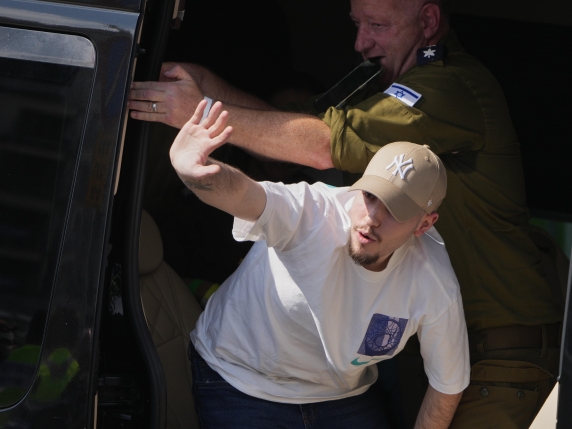
FROM OUR CORRESPONDENT
TEL AVIV - An article in the progressive daily Haaretz begins with a sentence that perfectly sums up the meaning of these Israeli days: For the first time in over two years, no hostages are still alive in the hands of Hamas. It is that"for the first time" that makes us understand the historic significance of this moment. In the tunnels of bomb-torn Gaza, there are no longer any men and women of Israel. The living have returned. Now they await the bodies of the hostages who didn't make it, but here, for the first time in two years, one can breathe.
The last twenty prisoners—all male, almost all young, and almost all kidnapped at the Nova Festival—are with their families in the country's largest hospitals. They receive visits and check-ups and spend time with those who have waited for them for 738 days, losing their voices and sleep to be heard by a prime minister blinded by war, who often seemed to forget his people's priority: bringing everyone home. And 48 hours after their release, these young men begin to recount what they have experienced in body and soul. The torture, the scars, but also the hopes. The hunger, the loneliness, and the fear that there was nothing left at home, that the country had been razed to the ground. The chains on their ankles, a pita bread shared with their other comrades. The terror of the Israeli bombs falling inexorably. And those tormentors, who showed no mercy.
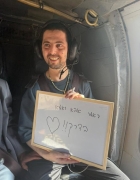
Elkana Bohbot
Elkana Bohbot has a stomachache. Doctors explain that it hurts because Hamas militants stuffed him with food before freeing him: they didn't want him to look malnourished once outside. Instead, the 36-year-old kidnapped at the Nova Festival, who spent almost all 738 days tied to a chain, under a tunnel, without light or air, ate only a few pieces of pita bread. He recounted from his hospital room:"Down there, I lost track of time and space." He recalled a special moment for him: it was their wedding anniversary. His wife's name is Rivka. He wanted to celebrate that date and asked a guard to take a shower. He had never showered before. The militant replied, 'Shut up.' Elkana found the courage to ask him and convinced him. His captor freed him from his chains, shaved his head, and made him wash. Today, Elkana suffers severe pain in his legs and back. The former prisoner was able to reunite with his partner and his five-year-old son, Ram. At kindergarten, the little boy built binoculars: He learned that his father would return by helicopter, and in recent months he has been looking up at the sky for him. The last time his family saw him alive, he appeared in a video published by Hamas. In tears, bent over, he begged: I'm suffocating. I want to get out. Please help me. I miss my family .

Matan Angrest
Matan Angrest has spent the last four months in a tiny, dark tunnel. The soldier kidnapped by a tank on the Gaza border said he underwent surgery on his hand without anesthesia, like many in the Strip. His mother, Anat, shared some details of her son's 738 days of darkness: For a long time, he was alone. He was under special surveillance because he was part of the army. He had no information about what was happening around him. The militants told him that Israel had abandoned them, that they would conquer the country, and that they were planning for October 7. The boy remembers the heavy bombardment by the Israeli army, the planes flying overhead. The walls collapsing around him, and the dust from the rubble. In the days before his release, they gave him much more food, his mother said. Matan has forgotten the details of his kidnapping, but not the battle that preceded it and the friends who were killed. He has flashbacks of a fire. He remembers burning his hands and losing consciousness. Once he returned to Israel, he discovered that his kidnappers had also lied to him about his family: they had told him that his grandparents, Holocaust survivors, were dead. Seeing them alive was one of his greatest joys. Despite everything, his mother said, Matan seems to be doing quite well, especially psychologically.
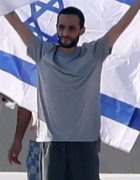
Nimrod Cohen
Being able to say what they just said was the dream of Nimrod Cohen's parents. His father: Nimrod is still Nimrod. The two years of captivity have made him thinner and paler, but my son's way of speaking is the same, his mood is good. Nimrod is the same boy I was before, says Yehuda Cohen. The young former hostage began to recount his 738 days in the militia's tunnels. Last March, after the end of the second truce, with Israel's blockade of humanitarian aid, food for the prisoners also drastically decreased. During his detention, Nimrod managed to receive a few fragments of news that came from the conversations of his captors, from the radio. He knew we were fighting for him, along with the other families, to bring the hostages home. He knew that the Israeli people have never forgotten the prisoners. Mr. Cohen is overjoyed; his son's return was his priority, but he can finally say what he thinks, because Nimrod is home: The war is not over at the national level. We must ensure that those responsible for this affair, first and foremost Prime Minister Benjamin Netanyahu, step aside. On October 7, 2023, Nimrod was hit by a tank on the border with Gaza. Four fellow soldiers were with him: they all died in the attack.
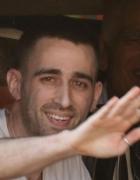
Avinatan Or
The last thing Avinatan Or saw as a free man was his girlfriend being carried away on a motorbike, crushed by the bodies of two militiamen. Noa Argamani stretched out her arms towards him, begging him to let her go. Until a few hours earlier, the two had been dancing happily at the Nova Festival. Then, Avinatan was taken to Gaza without knowing what had happened to Noa. He is one of the few former hostages to have spent two years completely alone, hidden in the central area of the Strip, in extremely harsh conditions. He said he was systematically starved and, according to an initial medical report, he lost between 30% and 40% of his weight. Of the twenty released, Avinatan seemed to be suffering the most. However, he managed to celebrate his return home. He knew nothing of what was happening outside the tunnel, his prison. She had no idea that Noa had been freed in an Israeli army raid. Two years have passed since I last saw Avinatan, the love of my life. Two years in which terrorists kidnapped us, put me on a motorcycle, and tore me away from Avinatan in front of the entire world, the girl wrote on social media. Each of us has faced death countless times, and yet, after 738 days of separation, we are finally taking our first steps together again, in the State of Israel.
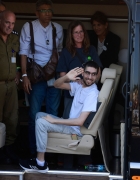
Evyatar David
Evyatar David is the boy we saw digging his own grave in a video published by Hamas. He is the young man whose bones you could count and who, kneeling in a tunnel in Gaza, accepted a can of lentils from the giant hand of a militant. Evyatar, his family says, was subjected to severe physical and psychological abuse. His father commented that he is still very weak and skeletal. Initial tests show that he has a severe mineral, vitamin, and nutrient deficiency, but he is alive. In the tunnels of the Strip, he spent moments of terror, between bombs and isolation. On October 7, he was kidnapped with his childhood friend, Guy Gilboa-Dalal, during the Nova Festival, where Hamas killed over 300 people. A music enthusiast, Evyatar was working in a bar to raise money for a trip to Thailand. His friend Guy is also among the twenty newly freed, but on that Black Saturday in October 2023, two of their friends were killed by militants. The family says that in recent months, Hamas men have filled Evyatar's head with lies. They told him that Israel had forgotten about him and that the country had been razed to the ground. But that is already in the past. His parents celebrate: We knew he would make it. After two years of suffering, he is here with us. Now he will begin a new journey.

